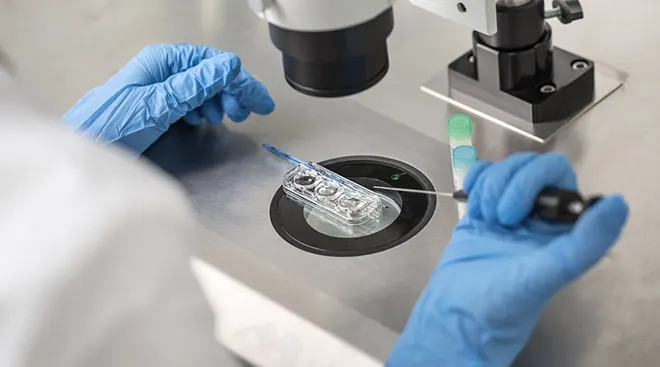Eating fruits and veggies is never a bad thing, right? You’ll just want to make sure you wash them first, since a new study links their pesticide residue to a decline in sperm quality.
You already know pesticides are pesky when it come to baby making — studies have linked pesticide exposure during pregnancy to autism. But this study — published in the journal Human Reproduction — is “the first report on the consumption of fruits and vegetables with high levels of pesticide residue in relation to semen quality,” according to its authors.
Researchers divided 155 male participants into four groups, including those who ate the most fruits and vegetables high in pesticide residues (at least 1.5 servings per day), those who ate the fewest (less than half a serving per day), and those who ate fruits and veggies with low-to-moderate pesticide residues.
The guys that ate a ton of fruits and veggies with higher levels of residue? They had 49 percent lower sperm count and 32 percent lower percentage of normally-formed sperm than those who ate the least. But researchers aren’t encouraging guys to abandon healthy foods for the sake of fertility.
"These findings should not discourage the consumption of fruit and vegetables in general, says Jorge Chavarro of Harvard’s T.H. Chan School of Public Health. “In fact, we found that total intake of fruit and vegetables was completely unrelated to semen quality. This suggests that implementing strategies specifically targeted at avoiding pesticide residues, such as consuming organically-grown produce or avoiding produce known to have large amounts of residues, may be the way to go.”
When it came to fruits and veggies with low levels of pesticide residue, researchers found men who ate more actually had higher levels of normally-formed sperm.
Learn more about male infertility here.
Please note: The Bump and the materials and information it contains are not intended to, and do not constitute, medical or other health advice or diagnosis and should not be used as such. You should always consult with a qualified physician or health professional about your specific circumstances.
Navigate forward to interact with the calendar and select a date. Press the question mark key to get the keyboard shortcuts for changing dates.


















































